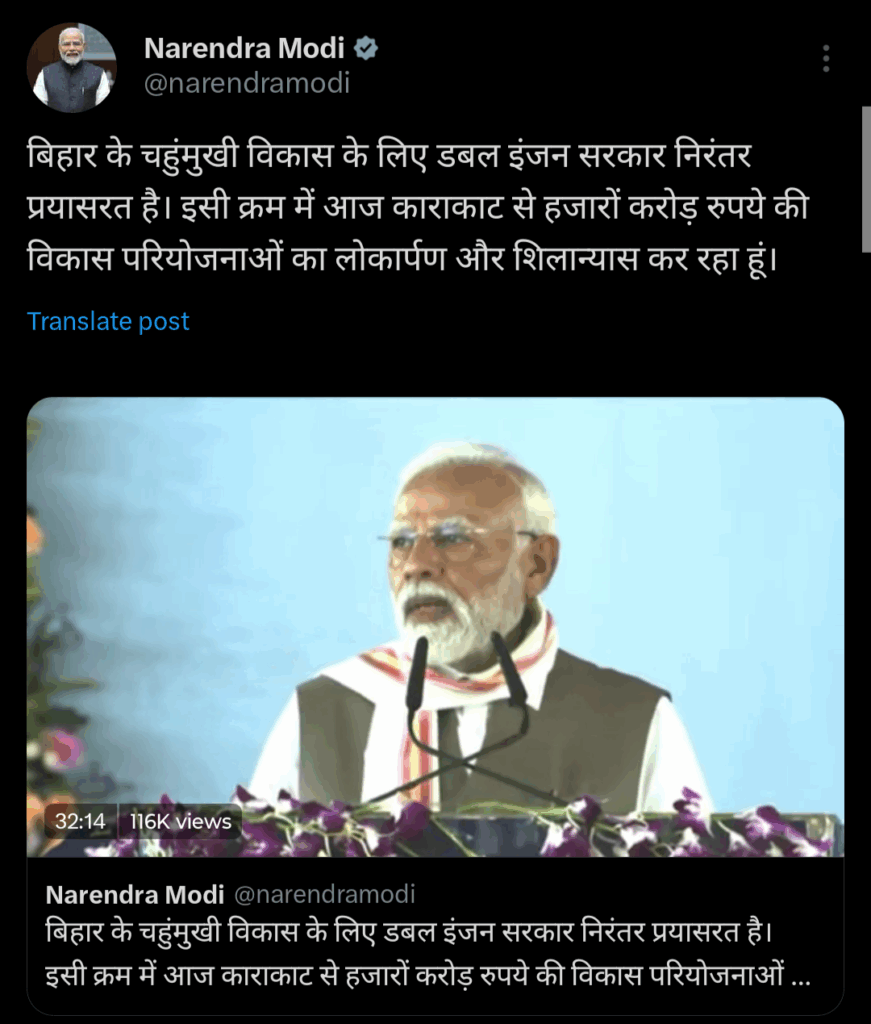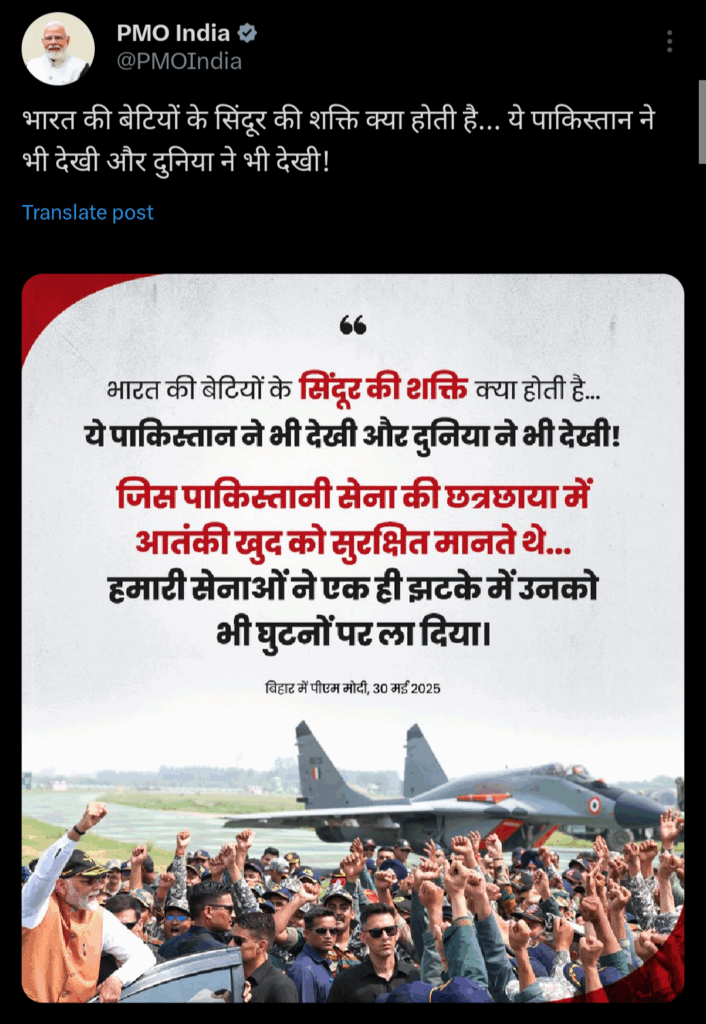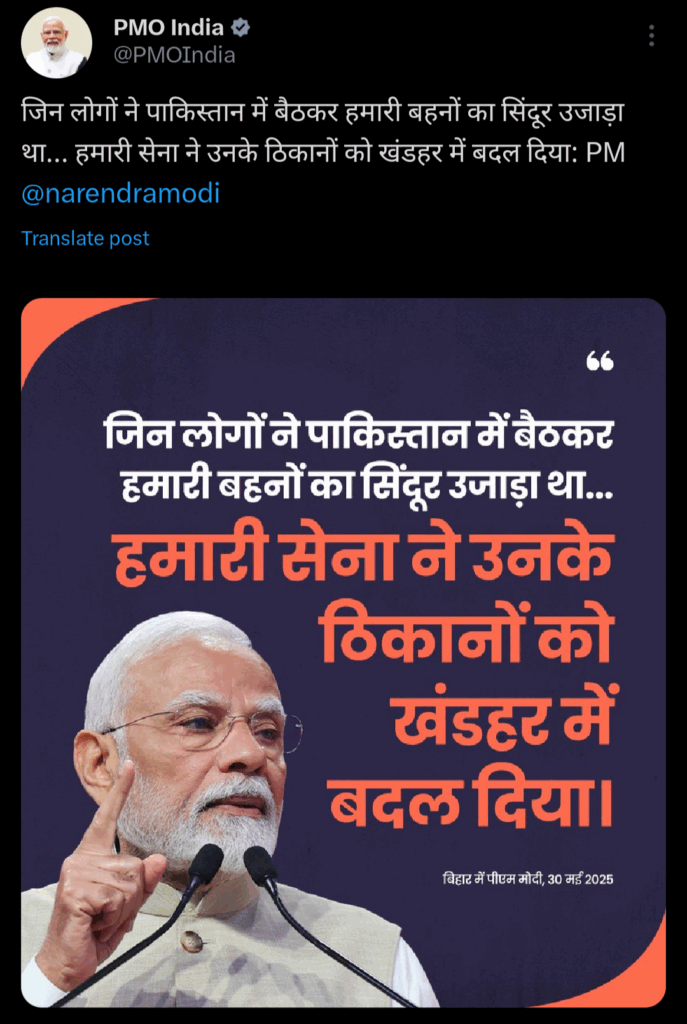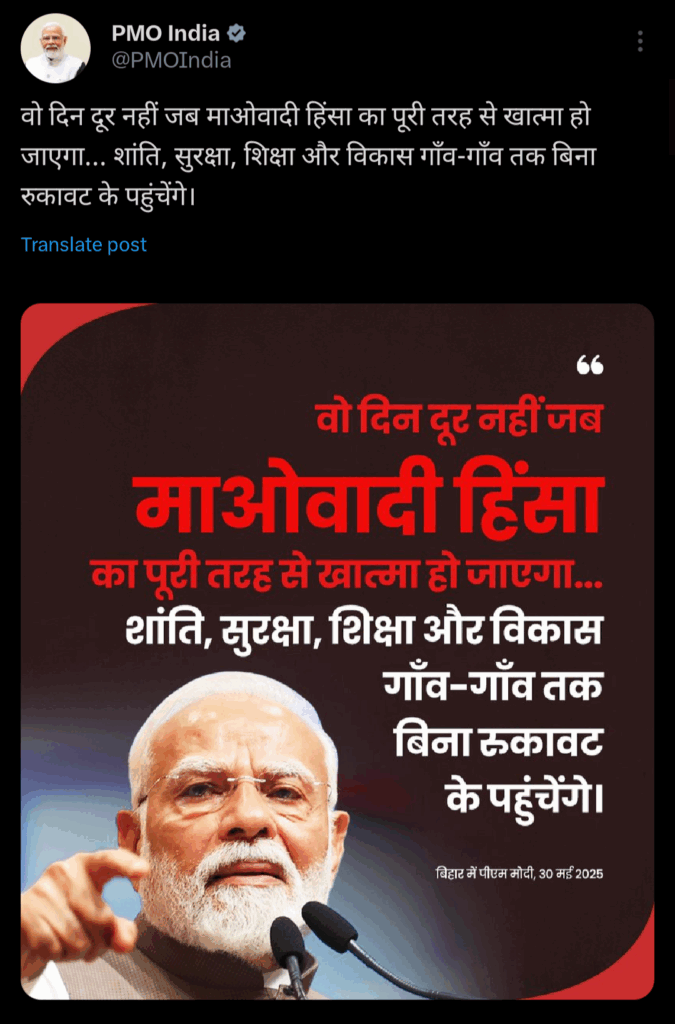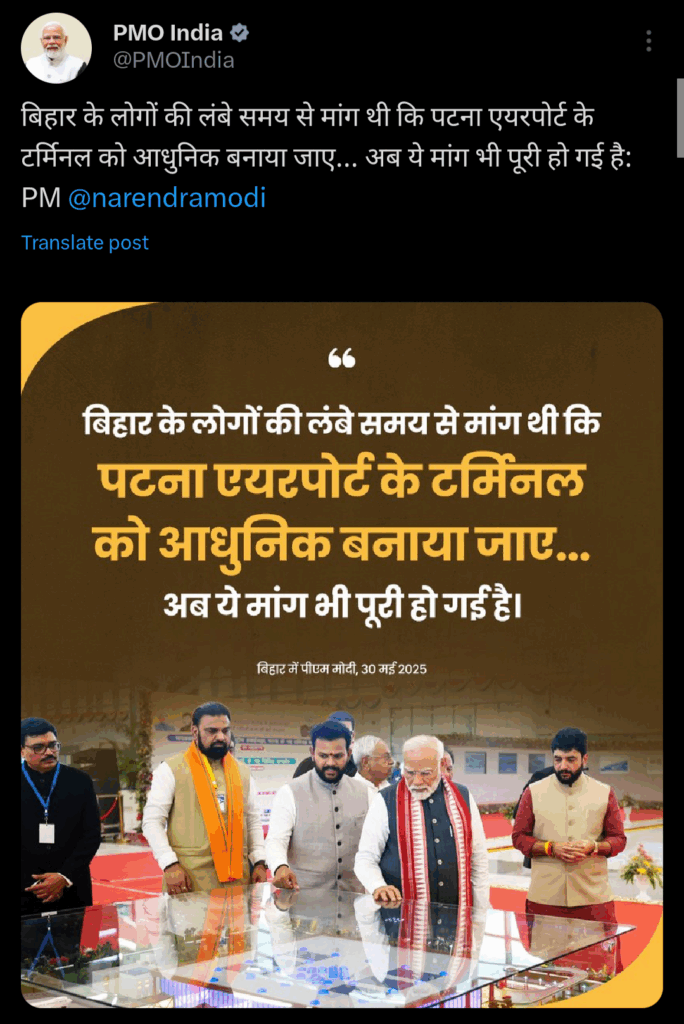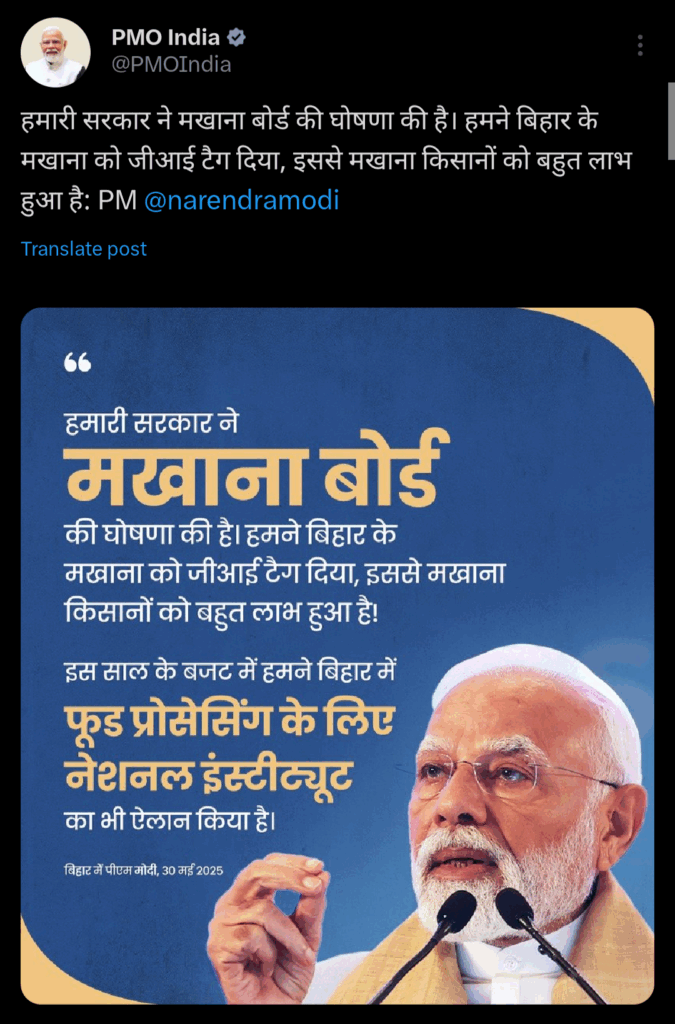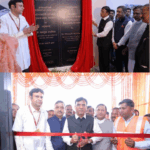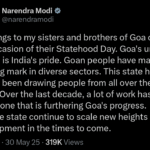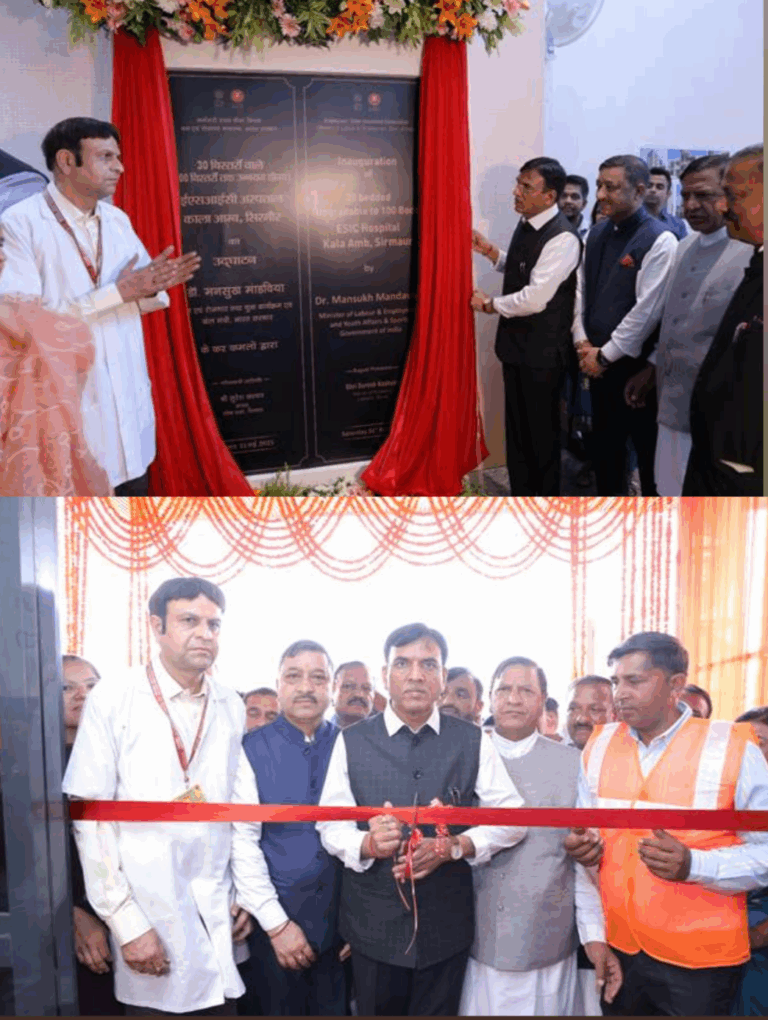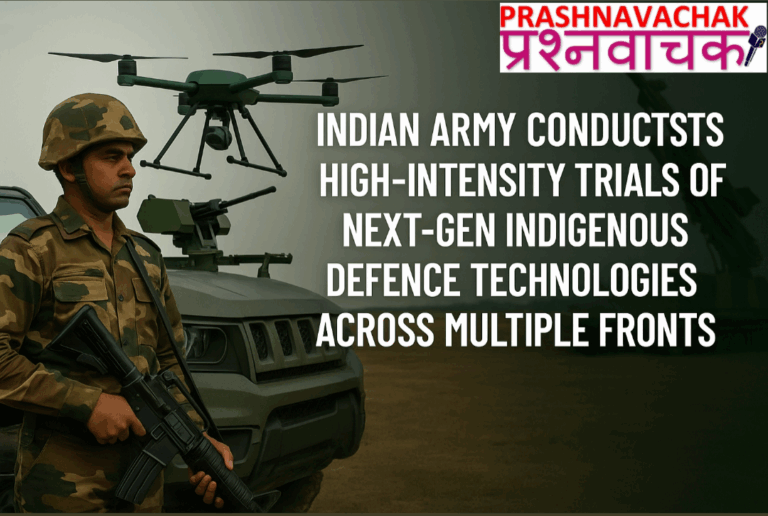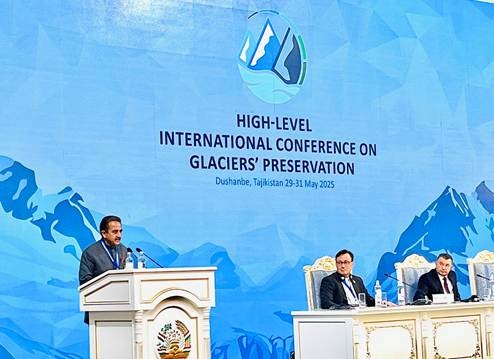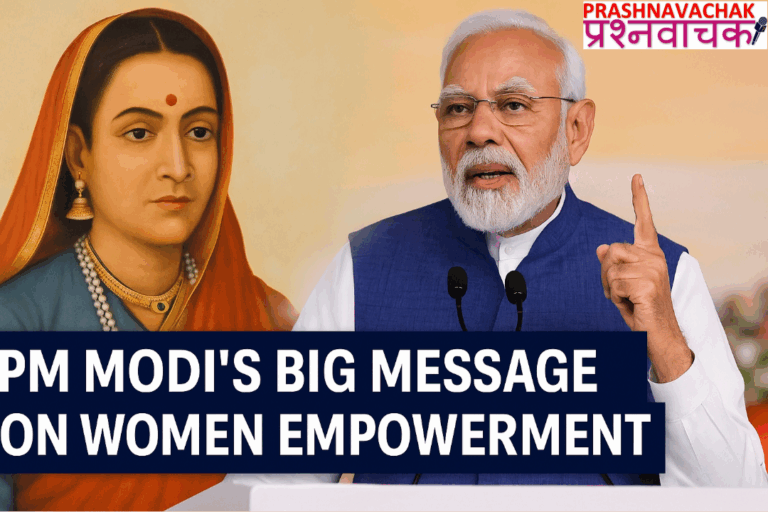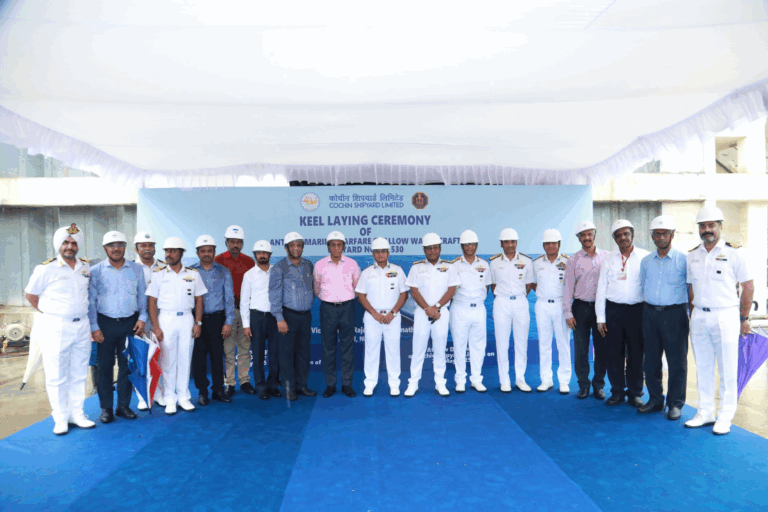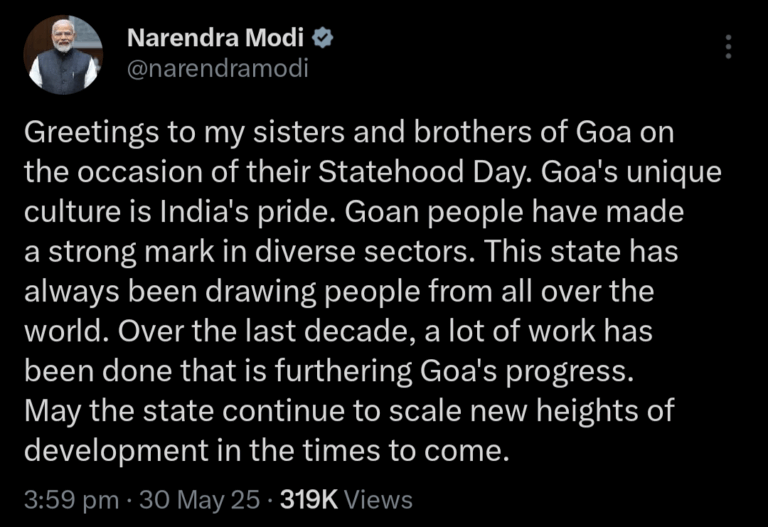Prashnavachak News
Prime Minister Narendra Modi inaugurated and laid the foundation stones for several key development projects in Karakat, Bihar, with a combined investment of over ₹48,520 crore. Expressing his gratitude to the people of Bihar, especially the mothers and sisters, Modi emphasized his commitment to accelerating Bihar’s growth and highlighted the sacred significance of Sasaram, connecting its legacy to Lord Ram’s principles of commitment and fulfillment. A key highlight of the event was the Prime Minister’s firm stance on national security. Recalling the recent terrorist attack in Pahalgam, he assured that justice has been served through “Operation Sindoor,” where Indian forces decisively struck terror hideouts in Pakistan, showcasing India’s strength and resilience. Focusing on Bihar’s brave sons, Modi praised the contributions of thousands of young men serving in the Indian Armed Forces and the Border Security Force (BSF), paying tribute to the martyred BSF Sub-Inspector Imtiaz. He noted the exemplary courage of the BSF during Operation Sindoor and affirmed that the forces remain an unbreakable shield protecting the nation. The Prime Minister drew attention to Bihar’s battle against Naxalism, narrating how fear once prevailed in districts like Sasaram and Kaimur due to militant violence that hindered development and endangered lives. Since 2014, concerted efforts have reduced the number of Naxal-affected districts from over 125 to just 18. Modi expressed optimism that Maoist violence would soon be eradicated, ushering peace, security, education, and growth to all regions. Highlighting infrastructure development, Modi outlined major road and highway projects transforming Bihar’s connectivity. He laid the foundation for the four-laning of the Patna–Arrah–Sasaram section of National Highway 119A, as well as the six-laning of the Varanasi–Ranchi–Kolkata highway (NH-319B) and the Ramnagar–Kacchi Dargah stretch (NH-119D). Additionally, the construction of a new bridge over the Ganga river between Buxar and Bharauli was initiated, aimed at creating seamless, high-speed corridors to boost trade and regional integration. He also inaugurated the four-laning of the Patna–Gaya–Dobhi section of National Highway 22, worth approximately ₹5,520 crore, and the four-laning and improvement of the elevated highway in Gopalganj Town on National Highway 27. These projects are expected to generate employment opportunities for thousands and foster tourism and commerce in Bihar. In railway infrastructure, Modi dedicated the third rail line between Son Nagar and Mohammad Ganj, valued at over ₹1,330 crore. He also highlighted ongoing doubling and tripling of tracks in regions like Chhapra, Muzaffarpur, and Katihar, along with the multi-tracking project between Son Nagar and Andal, which will enhance rail traffic flow. Over 100 trains now halt at Sasaram, reflecting improved connectivity and modernized services, including the introduction of Vande Bharat trains. Power infrastructure also took center stage, with the foundation stone laid for the Nabinagar Super Thermal Power Project Stage-II (3×800 MW) in Aurangabad district, an investment of over ₹29,930 crore. This project will provide 1,500 megawatts of electricity, supporting Bihar’s industrial growth and energy security. Modi also announced new thermal power plants in Buxar and Pirpainti. Complementing this, the Prime Minister stressed Bihar’s push towards renewable energy, mentioning the solar park in Kajra and the PM-KUSUM scheme, which empowers farmers to generate income through solar energy and strengthens rural electrification. Addressing agricultural prosperity, Modi highlighted that over 75 lakh farmers in Bihar benefit from the PM-Kisan Samman Nidhi scheme. He announced the establishment of a Makhana Board, celebrating Bihar’s Makhana crop receiving a GI tag, and the government’s plan for a National Institute for Food Processing. The recent increase in Minimum Support Price (MSP) for 14 crops, including paddy, promises better income for farmers in the Kharif season. On social justice, Modi criticized past governments for neglecting marginalized communities such as Dalits, backward classes, and tribals, who were denied basic facilities like sanitation, shelter, and banking access. He condemned political parties that exploited social justice narratives without delivering real benefits, highlighting the government’s inclusive approach through campaigns like the Dr. Bhimrao Ambedkar Samagra Seva Abhiyan, which ensures direct delivery of 22 welfare schemes to the poor, reducing corruption and discrimination. The Prime Minister concluded by reaffirming Bihar’s transformation as vital to India’s progress and called upon all citizens to unite in accelerating development, fulfilling the vision of leaders like Baba Saheb Ambedkar, Karpoori Thakur, and Jayaprakash Narayan. The event was attended by Bihar Governor Arif Mohammed Khan, Chief Minister Nitish Kumar, Union Ministers Jitan Ram Manjhi, Giriraj Singh, Rajiv Ranjan Singh, Chirag Paswan, Nityanand Rai, Satish Chandra Dubey, and others.
